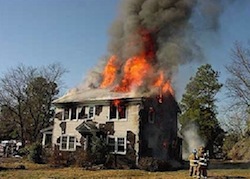Hurricane Sandy caught a lot of people by surprise. The New York area isn’t exactly known for getting massive hurricanes, so most residents were not as prepared for such a disaster. While there are lots of things you can do to be physically prepared for natural disaster (Bottled water, generators, etc ), something that is not often mentioned is how you can be financially prepared.
First, the most obvious instrument people think of when they consider disaster preparation is insurance. Insurance is only as good as what it covers though! Now is a good time to evaluate what exactly your insurance covers. It’s usually uncommon for it to cover flooding for example. There are also secondary events that happen in disaster, a pipe breaking, a tree falling on your roof etc Walk through your insurance policy with your provider and see what you are and are not covered for. As Sandy showed, don’t assume a certain type of disaster is impossible in your area. Even an earthquake happened last year on the Mid-Atlantic.
While you are looking at insurance, one thing you’ll notice are the deductibles (the amount of money you need to pay before your insurance kicks in when you make a claim). High deductibles are a great way of saving money on insurance. After all, insurance is essentially a worst case scenario, if you have low deductibles, you could be paying the insurance more over time then if you had a higher deductible in those rare situations.
That said, you NEED to have an emergency fund. It’s recommended you keep some amount of cash on-hand at all times in case banks are not open or ATMs don’t have power. Beyond a small cash horde (no more then a few hundred dollars), you need to have an emergency fund in the bank. This is what you’ll pay your deductibles (and anything your insurance doesn’t cover) with.
Most people recommend an emergency fund of at least 3-6 months. We discussed how to get one started previously. I recommend 6 months in cash in a Savings account, and then continually savings above that in other psudo-liquid forms that make more interest (bonds, mutual funds, etc…).
Hopefully your family stayed safe in this most recent disaster, but now is a great time to plan, as the Boy Scouts say, always be prepared!

